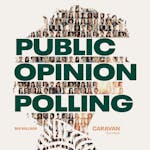COVID-19 – Unprecedented Impact
The shock waves of COVID-19 around the globe are already massive; thousands of lives have been lost, tens of thousands have become ill, and yet in the US and many other countries, the full brunt of the virus is still to come.
Governments around the world are taking strong measures to blunt the rate of new infections, so their country’s infrastructure and health care system have a chance of coping when the surge hits; even in “the land of the free”, unprecedented restrictions have been introduced on the ways that we live; an ENGINE CARAVAN survey of 1,003 US adults conducted between March 13th-15th, showed that 30% of US adults have had events cancelled because of the virus. Moreover, a fifth have experienced a vacation cancellation. Those numbers will certainly rise.
Consumers are acting, but with unforeseen consequences
Even before local, state and Federal authorities introduced restrictions on the way we live and how we associate, US consumer were doing it for themselves; 90% of US adults have followed the emergency closely and 80% have acted on their concerns – more than half have stopped shaking hands, 50% are avoiding public transportation and more than 40% have cut back on their use of restaurants and socialization in general. And 40% have cut back on business travel.
The severe impact of reduced business travel on the airline industry has been well documented; with more than 1.3 million trips each day, domestic business trips have been important not only to the airlines but to the overall US economy – it’s estimated that in a typical year, business trips alone contribute more than $280 billion directly to GDP. Fewer people flying damages the airlines, but it also has a direct and detrimental effect on the economy.
Airline attempts to address concerns have had limited impact
Eighty percent of those who’ve so far cancelled a business flight, or a flight for personal reasons, did so because of concerns about the coronavirus (the remainder cancelled because of illness, or for other personal reasons). And concerns about the virus seem to be largely intractable; the airlines have taken numerous steps to ramp-up aircraft sanitization and consumers seem to be aware of their efforts, but the steps taken are not sufficient to encourage people back into the sky – the fear generated by COVID-19 runs too deep. As one CARAVAN survey respondent put it, “There’s nothing they could do. I wouldn’t fly if they paid me!”
Moreover, many of the changes that might encourage consumers to fly again before the CDC announces that the virus is contained are just not feasible for the airlines; a flight makes money if its seats are full and each flight is sold at an optimized price – consumer suggestions of the things that would encourage them back into the air include lower prices and fewer seats (to ensure safe spaces between passengers) but neither idea fits viably into the current airline business model.
And to make the challenge harder still, even if it was possible for the airlines to cut prices while also removing seats, there would be no guarantees; as another survey respondent put it, “I would still be concerned and having second thoughts…it’s still spreading all over the world”.
The problem for the airlines could be enduring
Whether we believe those who claim that the pandemic will subside when warmer weather arrives, or that it will be gone by the end of summer, or even that it’ll be part of our lives through the year end, we can all envisage a day when all the turmoil and anxiety created by COVID-19 is behind us, a time when things return to normal. No doubt, the airlines long for that day to come, too.
The problem is that even when life has returned to normal for most of us, and the economy is on a recovery path, there might be no return to normal for the airlines – almost 10% of US consumers say that, even when the CDC gives the “all clear”, they will avoid flying if at all possible. And another 12% say that they will fly less often than they did before the crisis, especially those with household incomes of over $200k per annum, i.e. the very people the airlines need to return in their droves.
Clearly, these are alarming signs, but let’s recognize that currently we’re in the thick of the crisis and opinions might soften as we learn more about how the virus operates, how easy it is to mitigate and just how deadly it really is.
At ENGINE, we are keeping the pulse on the consumer during the COVID-19 pandemic, and are regularly running our CARAVAN surveys on these issues. Contact us for more information, or for the full CARAVAN survey findings.
Written by Andy Turton, SVP at ENGINE Insights.










